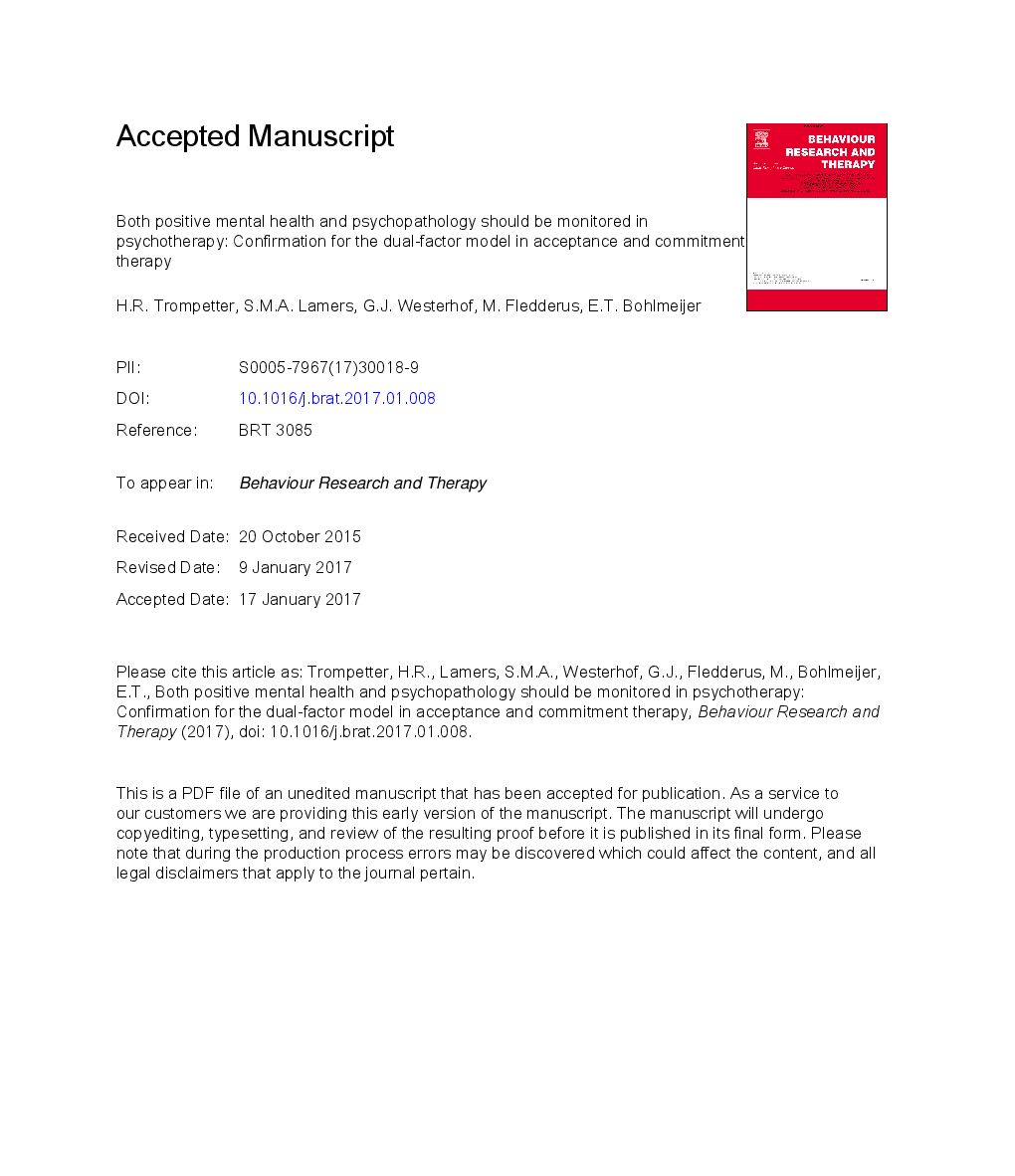ترجمه فارسی عنوان مقاله
هر دو روانپزشکی و روانپزشکی مثبت باید در روان درمانی تحت نظارت باشند: تأیید مدل دوگانه در پذیرش و تعهد درمان
عنوان انگلیسی
Both positive mental health and psychopathology should be monitored in psychotherapy: Confirmation for the dual-factor model in acceptance and commitment therapy
| کد مقاله | سال انتشار | تعداد صفحات مقاله انگلیسی |
|---|---|---|
| 120961 | 2017 | 24 صفحه PDF |
منبع

Publisher : Elsevier - Science Direct (الزویر - ساینس دایرکت)
Journal : Behaviour Research and Therapy, Volume 91, April 2017, Pages 58-63
ترجمه کلمات کلیدی
مدل دو عامل، سلامت روانی مثبت، افسردگی، اضطراب، پذیرش و تعهد درمان، روان درمانی، نظارت بر،
کلمات کلیدی انگلیسی
Dual-factor model; Positive mental health; Depression; Anxiety; Acceptance and commitment therapy; Psychotherapy; Monitoring;

